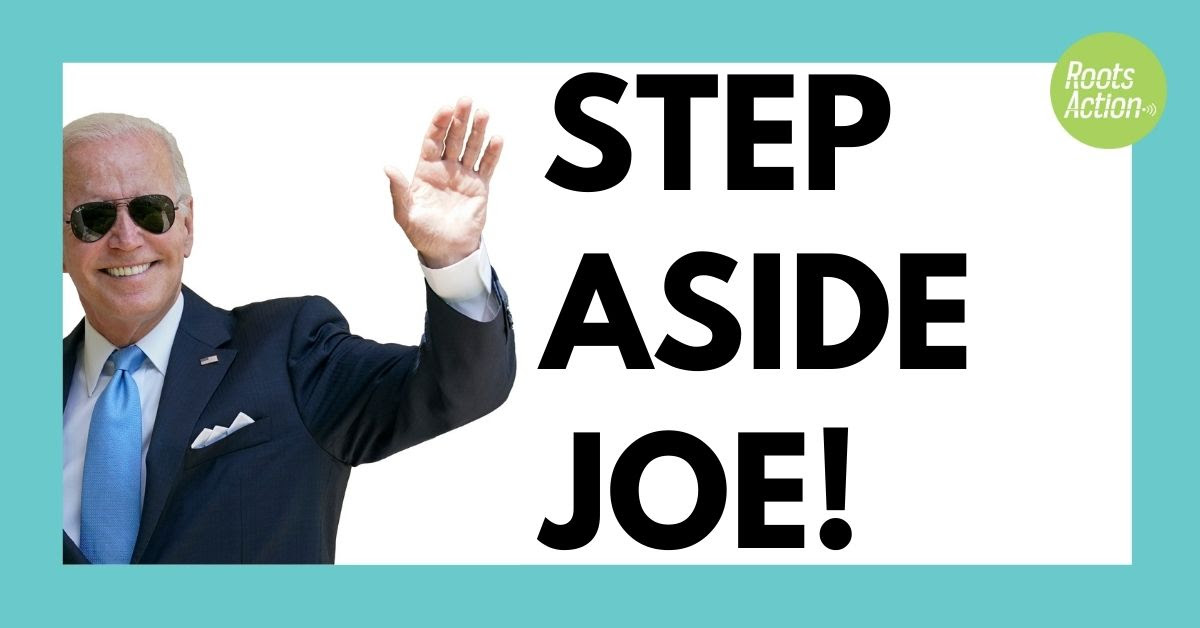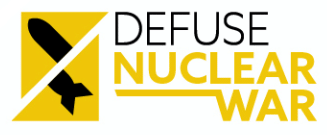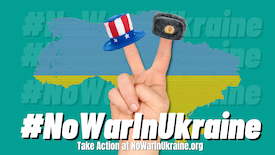U.S. military veterans, including lethal drone participants, are joining efforts to inform the American public about the secrets of the endless “war on terror” and are supporting Edward Snowden’s whistleblowing, reports Dennis J Bernstein.
Lisa Ling, a retired Air Force Sergeant and former U.S. Drone Program Operative, has joined a petition campaign to get the Norwegian government to shield National Security Agency whistleblower Edward Snowden from extradition so he can receive Norwegian PEN’s Ossietzky Prize for outstanding achievements and courage.
A petition started by Roots Action was launched on Snowden’s behalf, requesting that the Norwegian government commit to providing Snowden guaranteed protection from extradition to the United States where he faces criminal charges for disclosing classified secrets relating to the NSA’s collecting of data on Americans.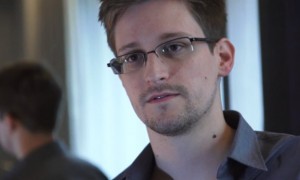
Former National Security Agency contractor Edward Snowden. (Photo credit: The Guardian)
Ling spoke with Flashpoints radio host Dennis J. Bernstein from Oslo, Norway, explaining why she is such a strong supporter of Snowden and her thoughts about the U.S. drone program, which has killed hundreds of victims, including innocent women and children.
Ling is featured in the soon-to-be-released documentary film, National Bird, which documents, “the dramatic journey of three whistleblowers who are determined to break the silence around one of the most controversial current affairs.”
The Roots Action petition notes, “We do not want Snowden’s chair to be empty in the University Hall in Oslo due to lack of approval to travel to Oslo, as Ossietzky himself was prevented by Hitler from coming to Oslo to receive the Nobel Peace Prize in 1936.” Signers of the petition include: Noam Chomsky, Arundhati Roy, Daniel Ellsberg, Coleen Rowley, Thomas Drake, Marsha Coleman-Adebayo, William Binney, William Nygaard and John Kiriakou.
Dennis Bernstein: Why don’t you begin with some background on your own military career and why you are in Oslo, speaking out on behalf of NSA Whistleblower Edward Snowden.
Lisa Ling: I was working in the drone program for two years. And I’m here in Oslo in solidarity with Edward Snowden because an important petition was launched …, and it was basically about having him be able to come here [to Oslo] and accept an award for his whistleblowing.
DB: And there is a concern that he would be, if you will, kidnaped by some version of U.S. law enforcement and taken back to the U.S. to be prosecuted? Is that the concern?
LL: If I were in his position, I would have a fear of extradition.
DB: You were in the drone program — what were your responsibilities there?
LL: Basically, what I did is, I worked on the system that gathered data. I was more in the technical realm. I was not a drone pilot or a sensor operator, or anything like that. I basically worked on the system, behind the scenes.
DB: And when you gathered data, what does that mean? What would you be doing? Who would you gather data about?
LL: What I did was I just worked on a system that collected data from where some individuals…
DB: From individuals in what country?
LL: Different countries, where drones fly over.
DB: You know, so for instance, drones that would be used in Afghanistan, in Pakistan, and other places?
LL: Yes.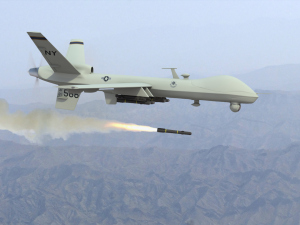 A Predator drone firing a missile.
A Predator drone firing a missile.
DB: And did you work with other folks? What was the morale like inside? Were people excited about the program? Did people at all question it, given the amount of resistance and protests around it?
LL: Well, basically, in a nutshell, you are talking about walking into a war footing while you are still in the U.S. So, one minute you step over a threshold and you are working extremely long hours, the operational tempo is incredibly high. There’s, you know, what’s been published in the paper and all this … there’s a shortage of troops … and then you walk outside and somebody is maybe missing a television show, and you just realized that there’s a war going on. And there’s a disconnect between people and knowing that we’re in America’s longest war.
DB: By the way, what was your rank in the military?
LL: I was a Tech Sergeant.
DB: In terms of working with the data, I guess it was fed to the pilots who actually did the bombing. Did you ever hear, were there ever reports inside, about whether you hit a target, what you hit, whether you missed a target, was that information that would come back inside?
LL: Not until after I ended up getting out [of the drone program] and received an award that mentioned how many people were impacted by the drone technology that I worked on.
DB: That was an award from the military?
LL: That was a military award, yes.
DB: And what did you learn from that award? How many, what was your impact? Did you, were there numbers involved?
LL: I don’t have the exact number with me, but it was a significant number, and I discussed that in the movie that’s going to be coming out in October called National Bird.
DB: A significant number of people that were killed, based on your intelligence and information gathering?
LL: Well, … the reason why I’m here [is to be] in solidarity with Edward Snowden, and to applaud his bravery, for making the American public aware of some of the things that are being done in our name. And not all whistleblowers give away classified information. That’s not a requirement to be a whistleblower. But what Snowden did took an extreme amount of bravery. He basically gave up his job, gave up his life, and did something to inform the American people so that we could have a badly needed discussion about surveillance.
DB: And I believe Edward Snowden said it was his learning of, among other things, of the drone program that put him over the edge; That made him want to do what he did. It was part of the inspiration. Is that your understanding?
LL: That’s my understanding. If you look at it, everything is basically connected now. We’re a data driven society. Everything that we do now is data driven, from our politics to our … I mean everything, basically. And that’s something that we need to discuss as citizens: is this how we want to prosecute war? Is this what we want to do? Is this what we want to use the technology for? And, as long as that’s in the dark, as long as that information is kept hidden, then the checks and balances that are required for a democracy to function are absent.
DB: Can I ask you just a little bit more about your background? What led you to join the military? And was there a certain point when you decided that you couldn’t do this kind of drone-connected work anymore? Could you tell us a little bit about the background, please?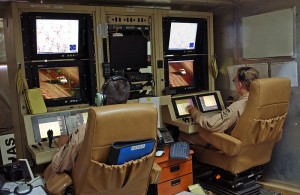
Done “pilots” launch an MQ-1 Predator unmanned aerial vehicle for a raid in the Middle East. (U.S. military photo)
LL: When I joined the military I joined as a medic, as a medical person, and I was in the Army National Guard. And my goal was to be able to help people. So when I joined up I thought, “This is a win, win. I’ll be able to learn a skill, I’ll be able to help people, how could I be anything but on the right side of history?” And as time went on and I was in the military, what happened was [that] I have an ability to work on electronic equipment, to work on computers. And this was during a time when the internet was being born, basically.
And, so, in an effort to be able to help people with their computers at the time, I moved over to doing that job. And I supported several different areas with regards to technical. I was a technician. And what happened was my unit changed into a drone unit and I didn’t know
what went on behind the door. I didn’t know it, I didn’t know.
And there was a period of time where I actually worked on the equipment and it wasn’t connected at that time (and, for me, having computer equipment and electronic equipment is like a kid in a candy store.)
And once I got to the other side of that wall, and I was read into that program, I wondered what it was that we were doing. And I questioned my own ethics. And I questioned what I was doing there. And I knew that I had to do something. […] I wasn’t willing to break the law or give away any secrets or anything like that. But I was willing to share my experience. And I did that through a movie that will, like I said, be […] called National Bird.
And I went to Afghanistan because I wanted to see the people in all of their dimensions because when you see things on a screen you don’t see … the human element is removed. And I’m sitting here looking at all this technical equipment that is being used to prosecute a war in our name, a conflict in our name, and it did not sit well with me. The idea that words were sanitized … there’s no such thing as a sanitary war. There’s no such thing. These are not targets, they are human beings.
DB: Was there a dialogue inside the military, inside the drone program? Were you the only one feeling concerned, or did this begin to sort of bubble up?
LL: I’m certain that I wasn’t… I’m certain that I’m not the only one that has concerns about this. But when the military prosecutes a war […] they teach you that you have to look at other people as “us versus them.” And it doesn’t matter who the “them” is. That’s just how we do war. And what I came to was that we’re talking about human beings with, specifically Afghanistan, with an incredibly rich culture, rich history.
DB: Can you share some of the people who you met there? Maybe one or two people that stand out in terms of your experience with the people?
LL: Most of the people that I met in Afghanistan were very kind. The first thing they wanted to do […] was give you chai tea and sit down and talk. And it was a place that was just full of humanity. It was full of vibrancy. As somebody visiting the country, I’ll never understand their culture. Even though I’ve been there, I’ll never understand their culture, and certainly no one can understand it looking at a screen, and seeing it in two dimensions.
DB: I know that we have interviewed many people, Lisa Ling, some former military and I guess you may have, by now, met some of these extraordinary people. We’ve had Ann Wright, a former colonel, who actually opened up the U.S. Embassy in Afghanistan, and then resigned her commission in response to the U.S. invasion of Iraq. These are extraordinary people. Have you had a chance to spend some time with these, or been inspired by some of the folks?
LL: Oh, absolutely. And Brandon Bryant was one of the first people that came out and spoke of the drone program. And he was one of the first. That was an incredibly courageous thing to do. I’m here with Cian Westmoreland, who also is speaking out about the drone program. I’ve met plenty of people…
DB:Is that Westmoreland related to the former general, Westmoreland?
LL: Actually, yes.
DB: Who led forces in Vietnam?
LL: Yes. And he was sharing about that when he spoke today. And, he too, is an incredibly brave young man. And I’m here in solidarity with Edward Snowden who did an incredibly courageous thing. And it just amazes me that out of one hand people are saying that he started a very important dialogue in our country.
And the other thing I want to say about all these people, they’re all patriotic people, they’re all speaking out as protecting our Constitution. It’s important to know that nobody is doing this because they don’t like the United States, or for any reason like that.
We just all believe in transparency and we believe that until something sees the light of day
and we have a conversation about it…. There is a war on whistleblowers going on right now. What that does is it has the news media […] unable to protect whistleblowers anymore. And that’s a direct result of some of the technology that is out there. The news media needs whistleblowers. They need sources in order to be a part of the checks and balances that makes a functioning democracy happen.
And Edward Snowden started that conversation and released records to the news media, in an effort to do what he was doing correctly. And he looked at Thomas Drake who did everything by the book, and recently the IG came out and said, “This is broken.” We need to do something to
gain people’s trust. That there’s a way that you can report wrongs that are being done, without experiencing retribution, in a fair way.
DB: Do you, I don’t know how to ask this question. And I ask it with the greatest respect, but do you have a sense or knowledge of some of the folks that you helped to wipe off the face of the earth?
LL: I went to Afghanistan and I did see a family that was impacted by drones. There was an investigation. And it’s, as far as I know, the only transcript of a drone strike that’s publicly available. And it was devastating. I mean, absolutely devastating. Again, these are human beings.
DB: So you met with families who were directly impacted.
LL: I met a specific family…
DB: That you know…?
LL: I have no idea.
DB: You don’t know.
LL: I mean, how can anybody know? And, see this is the thing, right? We talk about, in the United States, that we cannot have any refugees come to our country, because we don’t have any way of recognizing who they are. And to have them come would threaten the safety of our
citizens. And yet, we know exactly who to drone. And I have a difficult time wrapping my mind around that logic. It just does not make sense to me.
DB: Do you come from a military family?
LL: I do not come from a military family. My father did a short time in the military.
DB: I have to say that it’s really, really good to speak with you. I’m wondering if Mr. Westmoreland — I mean his father was definitely major military — was he in the military? Was this a leap for him?
LL: Cian? Yes, he was in the military. And we’ve actually been traveling to different places. We were just at Sheffield Documentary Festival recently. And, we’ve been traveling to some other places and talking about and sharing our experience with others, so that people will understand the humanity.
DB: And, I guess, the final thing is, there are so many reports and it seems to be confirmed that the Executive Branch, the President of the United States, Barack Obama, participates directly in the targeting and picking…. He gets a list, and he helps to decide who will live and who will die. So if you were sitting with him in that room right before he was going to go over that list, what would you want to tell him?
LL: I’d have to say [that] I’ve never been President of the United States. I do not know what that job would be like. What I would want to ask is, “Can we not have drones without arms? Can we not have drones without weapons on them?” I know that we’re not going to get rid of the technology, just like we haven’t gotten rid of nuclear technology, or any other military technology that we have set out to try and not have. I mean there have been regulations, there’s been things that have happened but putting drones out of commission is an impossible thing. But what I’d really like to see happen, is I would like to see the weapons removed from them.
Because a lot of people compare drones to conventional aircraft. And what happens with a conventional aircraft is it flies in, it drops a bomb, and it flies out. And in that time, even in a developing country, you could make bomb shelters out of sandbags. And at least there’s a
chance. But when you’re talking about something that loiters over your head for an extended period of time, you don’t know whether it’s armed or it’s not armed. What that does is, there are children on the other side of the world that are afraid to go outside on a sunny day. And to me, that’s terror. And so I want to ask, “Can we take the armaments off of drones?”
DB: Well, that’s mighty powerful. I do again appreciate the time you are spending with us and the courageous stand that you are taking to set an example and to stand up for Edward Snowden, who has told the truth about so many things that affect so many of us. So I can
understand why you are acting on his behalf, while you’re there in Oslo, Norway trying to defend his right to accept an international prize, a PEN award.
Published by Consortium News.

